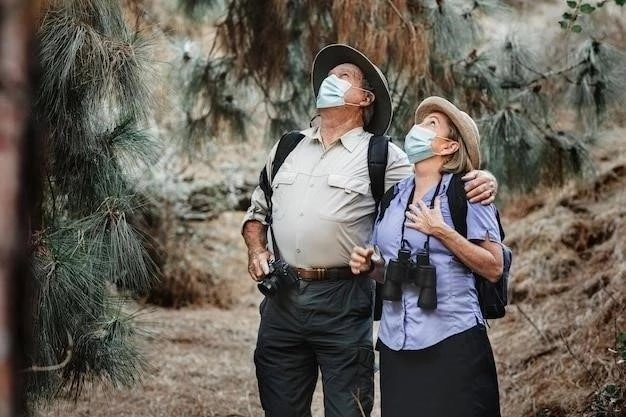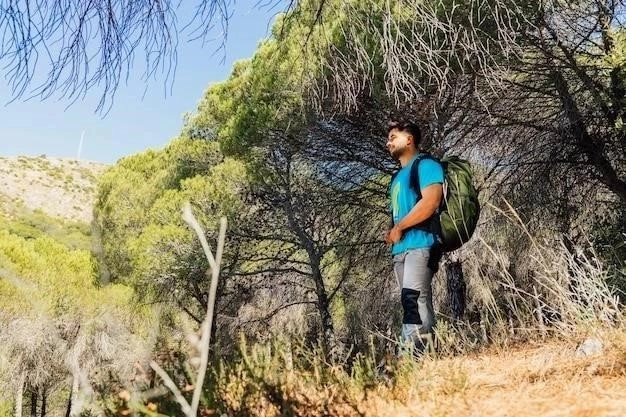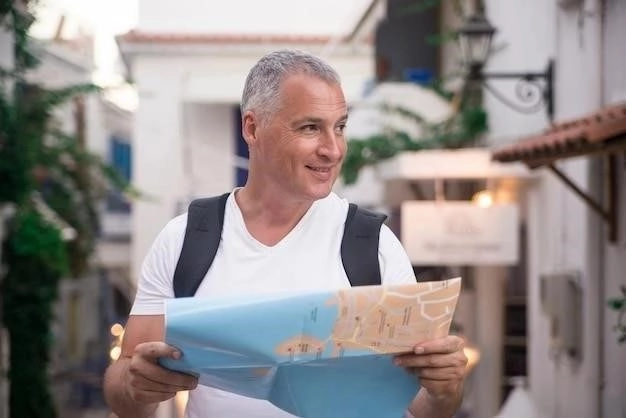Abkhazia Travel Guide
Nestled on the Black Sea’s coast, Abkhazia beckons with its stunning landscapes, intriguing history, and unique cultural tapestry. This travel guide will provide essential information for planning your journey to this captivating, partially recognized republic. From visa regulations and transportation to accommodation options and cultural insights, let this guide be your companion as you explore the beauty and complexities of Abkhazia.

Planning Your Trip
A journey to Abkhazia requires careful planning due to its unique political status and limited tourism infrastructure. Here are key considerations:
Time of Year:
The ideal time to visit Abkhazia is from May to September, when the weather is warm and sunny, perfect for enjoying the beaches and exploring the mountainous landscapes. During this period, roads to higher elevations are typically open. However, it’s important to note that September 30th marks Abkhazia’s Independence Day, which sees a surge in local tourism and festivities.
Visa Requirements:
Navigating visa regulations is crucial. Abkhazia requires most nationalities to obtain a visa. The process involves applying through the Abkhazian Ministry of Foreign Affairs website and presenting a confirmation letter upon arrival. It’s advisable to begin the application process well in advance (at least six weeks) and consult with a travel specialist or the relevant embassy for the latest updates and requirements.
Entry Points:
Access to Abkhazia is primarily via land border crossings from Russia. The most common route is through the Adler-Psou border crossing near Sochi. Keep in mind that entry from Georgia is generally not permitted. Therefore, if you are traveling from a country other than Russia, ensure you have a double-entry Russian visa.
Currency Exchange:
The official currency is the Russian Ruble (RUB). While some hotels and larger establishments may accept credit cards, it’s highly recommended to carry sufficient cash, especially when traveling to smaller towns and rural areas. Currency exchange services are available in major cities.
Language:
The official languages are Abkhaz and Russian. English is not widely spoken. It is helpful to learn a few basic Russian phrases or travel with a guide if you are not familiar with either language.
By addressing these key aspects, you can lay the groundwork for a rewarding and seamless experience in this captivating corner of the Caucasus.
Visas and Entry Requirements
Navigating Abkhazia’s entry requirements is paramount for a smooth trip. Due to the region’s disputed status, visa regulations can be particular and are subject to change. Always verify the latest information from the Abkhazian Ministry of Foreign Affairs or consult your local embassy well in advance of your planned travel dates.
Visa Application Process:
Most nationalities require a visa to enter Abkhazia. The application process involves completing an online form through the Abkhazian Ministry of Foreign Affairs website. You’ll need to provide personal information, travel details, and potentially a letter of invitation from a sponsoring organization or individual in Abkhazia. Upon approval, you will receive a confirmation letter to present at the border.
Entry Points:
Entry to Abkhazia is typically through the land border crossing with Russia at Adler-Psou, near Sochi. It is essential to understand that entering from Georgia is generally not permitted. If you are traveling from a country other than Russia, ensure you have the necessary documentation for transit, including a double-entry Russian visa if required.
Registration Upon Arrival:
Once you cross the border, you must register with the Abkhazian Ministry of Foreign Affairs office in Sukhumi or a designated registration point within three working days. Failure to register can lead to complications and potential fines.
Additional Considerations:
- It’s crucial to note that Abkhazia is not recognized by most countries. Therefore, your travel insurance might not be valid, and consular services may be limited.
- Ensure your passport has at least six months of validity remaining from your intended departure date from Abkhazia.
By carefully researching and adhering to these visa and entry requirements, you can ensure a smoother journey to Abkhazia.
Getting There and Around
Reaching Abkhazia and navigating within the republic requires careful consideration due to its political complexities and limited transportation infrastructure.
Arrival by Air:
While Abkhazia has an airport in Sukhumi, it primarily operates flights to and from Russia. International travelers will typically need to arrive via Russia. Sochi International Airport (AER) is the most convenient gateway, offering connecting flights to major cities within Russia and internationally.
Land Border Crossing:
From Sochi Airport, the most common route to Abkhazia is by road. The Adler-Psou border crossing connects Russia to Abkhazia and is approximately a 30-minute drive from the airport. Be prepared for potential queues and passport control procedures at the border.
Getting Around Abkhazia:
Marshrutkas (Minibuses):
These privately operated minibuses are a common and affordable mode of transport within Abkhazia, connecting towns and cities. They typically depart when full and can be hailed along main roads.
Taxis:
Taxis are available in cities and towns. Negotiate the fare beforehand, especially for longer distances, as there are often no fixed rates.
Car Rental:
While possible, renting a car is generally not recommended for most travelers due to the condition of some roads and local driving practices. Consider hiring a driver or organizing private transportation for greater convenience and safety.
Travel Tip:
Plan your transportation in advance, particularly for travel between cities or to more remote areas, as schedules and availability can be limited. Local contacts or tour operators can provide invaluable assistance in organizing transport.
By understanding the nuances of Abkhazia’s transportation system, you can ensure a smoother and more efficient travel experience within the republic.
Accommodation
Abkhazia offers a range of accommodation options, from modest guesthouses to larger resorts, catering to diverse budgets and preferences. However, it’s essential to note that the tourism infrastructure is still developing, and booking in advance is highly recommended, especially during peak season.
Hotels and Resorts:
Several hotels and resorts, particularly in cities like Sukhumi and Gagra, offer comfortable accommodations with amenities like Wi-Fi, restaurants, and swimming pools. These establishments often cater to Russian tourists and can range from Soviet-era structures to more modern buildings.
Guesthouses and Pensions:
For a more authentic local experience, consider staying in guesthouses or pensions, often family-run establishments offering a personalized touch. These accommodations tend to be more budget-friendly and provide an opportunity to interact with locals.
Rental Apartments:
In larger cities, renting an apartment is becoming increasingly popular, offering more space and independence. Several online platforms and local agencies facilitate apartment rentals, but it’s crucial to verify the legitimacy and security of the arrangements.
Booking Considerations:
- Due to the limited online presence of many accommodation providers in Abkhazia, contacting establishments directly via phone or email might be necessary.
- Clarify payment methods beforehand, as credit card acceptance might not be widespread, and cash payments in Russian Rubles are common.
- If you have specific requirements, such as dietary needs or accessibility, communicate them well in advance to ensure your chosen accommodation can accommodate them.
By carefully researching and booking your accommodation in advance, you can ensure a more comfortable and enjoyable stay while exploring the captivating landscapes and cultural treasures of Abkhazia.
Money and Currency
Understanding the nuances of Abkhazia’s monetary system is crucial for a seamless travel experience. The official currency is the Russian Ruble (RUB), denoted by the symbol “₽”. Familiarizing yourself with the exchange rates and payment methods will ensure smooth transactions throughout your journey.
Currency Exchange:
It is advisable to arrive in Abkhazia with Russian Rubles, as exchanging other currencies might be challenging, especially outside major cities. Currency exchange offices are available in banks, some hotels, and designated exchange bureaus. Ensure you compare rates from different providers to secure the best value.
Cash is King:
Abkhazia remains a largely cash-based society, and credit card acceptance is not widespread. While larger hotels, restaurants, and supermarkets in major cities might accept credit cards, it’s prudent to always carry sufficient cash, particularly when venturing into smaller towns, rural areas, or for smaller purchases.
ATMs:
ATMs are not readily available throughout Abkhazia. While you might find ATMs in cities like Sukhumi, it’s unwise to rely solely on them. It’s always recommended to have a backup plan, such as carrying enough cash or having access to alternative funds.
Tipping:
Tipping is not mandatory but is appreciated for good service, particularly in restaurants and for taxi rides. A standard tip of 10% of the bill is generally considered appropriate. For smaller services, rounding up the bill is a common practice.
By being prepared with sufficient cash in Russian Rubles and understanding the limitations of card payments, you can ensure a hassle-free financial experience during your travels through Abkhazia.
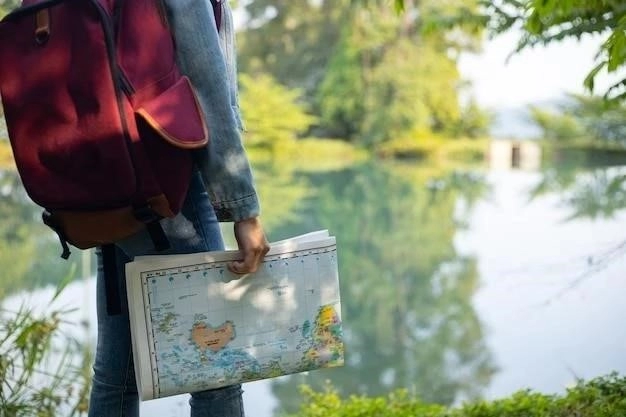
Food and Drink
Abkhazian cuisine offers a delightful fusion of Caucasian, Mediterranean, and Russian influences, featuring fresh, locally sourced ingredients and bold flavors. Exploring the culinary scene, from traditional restaurants to charming cafes, is a rewarding aspect of any trip to Abkhazia.
Must-Try Dishes:
- Khachapuri: A savory cheese-filled pastry, often considered a national dish of Georgia, is also popular in Abkhazia.
- Mamalyga: A porridge made from cornmeal, similar to polenta, often served with cheese, meat, or beans.
- Ach’pa: A hearty soup made with beef, walnuts, and a blend of spices, reflecting the region’s culinary heritage.
Local Drinks:
- Wine: Abkhazia has a long tradition of winemaking. Sample local varieties, often made from indigenous grape varieties.
- Chacha: A potent grape brandy, similar to grappa, is a popular local spirit.
- Ayran: A refreshing yogurt-based drink, often flavored with herbs, is perfect for quenching thirst on warmer days.
Dining Etiquette:
While dining in Abkhazia, it’s generally considered polite to wait for the host to offer a toast before drinking alcohol. Sharing food is customary, and finishing everything on your plate is a sign of appreciation. Tipping around 10% is common for good service in restaurants.
Embracing the flavors of Abkhazian cuisine, from traditional dishes to local wines, is a sensory journey reflecting the region’s rich culinary heritage and warm hospitality.
Things to Do and See
From pristine coastlines and verdant mountains to historical sites and captivating cultural experiences, Abkhazia offers a diverse range of attractions for the discerning traveler.
Explore Coastal Charms:
- Gagra: Stroll along the picturesque Gagra waterfront, adorned with palm trees and 19th-century architecture, and discover the remnants of the Gagra Colonnade, a symbol of the city’s bygone era.
- Pitsunda: Relax on the sandy beaches of Pitsunda, renowned for their crystal-clear waters and serene ambiance. Visit the ancient Pitsunda Cathedral, a historical and architectural marvel dating back to the 10th century.
Journey into the Mountains:
- Lake Ritsa: Embark on a scenic drive to Lake Ritsa, nestled amidst towering mountains and dense forests. Admire the emerald-green waters, surrounded by lush vegetation, and enjoy a boat trip for breathtaking views.
- New Athos Cave: Explore the fascinating New Athos Cave, one of the largest in the Caucasus. Marvel at the intricate stalactites and stalagmites, illuminated by colorful lights, creating an otherworldly experience.
Delve into History and Culture:
- Sukhumi: Wander through the streets of Sukhumi, Abkhazia’s capital, and discover its blend of architectural styles, reflecting its complex history. Visit the Sukhumi Museum, showcasing artifacts from ancient times to the present day.
- Tkvarcheli: Explore the ghost town of Tkvarcheli, a poignant reminder of Abkhazia’s recent past. Witness the remnants of Soviet-era infrastructure and abandoned buildings, frozen in time.
Abkhazia’s diverse landscapes and captivating cultural tapestry offer a wealth of experiences, from tranquil coastal getaways to exhilarating mountain adventures and thought-provoking historical explorations.
Sukhumi
As the capital of Abkhazia, Sukhumi is a vibrant coastal city steeped in history, culture, and a touch of faded grandeur. Its palm-lined promenade, eclectic architecture, and captivating atmosphere offer a glimpse into the heart of this partially recognized republic.
Historical Landmarks:
- Sukhumi Fortress: Explore the ruins of the ancient Sukhumi Fortress, dating back to the Byzantine era, perched on a hill overlooking the city. The remnants of its walls and towers offer a glimpse into the city’s strategic importance throughout history.
- Sukhumi Botanical Garden: Founded in 1840, the Sukhumi Botanical Garden houses a diverse collection of over 5,000 plant species from around the world. Stroll through its tranquil pathways, admire exotic flora, and enjoy the serene ambiance.
Cultural Experiences:
- Sukhumi Museum: Delve into Abkhazia’s rich history and culture at the Sukhumi Museum. Its exhibits showcase artifacts from ancient civilizations to the Soviet era, providing insights into the region’s complex past.
- Sukhumi Theatre: Attend a performance at the Sukhumi Theatre, a grand building dating back to the early 20th century. Experience Abkhazian culture through music, dance, and theatrical productions.
Seaside Promenade:
Enjoy a leisurely walk along Sukhumi’s picturesque seaside promenade, stretching for several kilometers along the Black Sea. Admire the city’s eclectic architecture, relax on benches overlooking the water, and savor the vibrant atmosphere.
Sukhumi, with its blend of history, culture, and coastal charm, offers a captivating introduction to Abkhazia. Explore its historical landmarks, embrace cultural experiences, and savor the city’s unique atmosphere.

Gagra
Nestled along Abkhazia’s picturesque coastline, Gagra is a captivating resort town renowned for its subtropical vegetation, historic architecture, and stunning seaside views. Once a favored destination for Russian aristocracy, Gagra retains an air of faded grandeur, blending with a relaxed, seaside ambiance.

Stroll Along the Gagra Waterfront:
The heart of Gagra is its vibrant waterfront, a palm-fringed promenade stretching along the Black Sea. Enjoy leisurely walks, admire the panoramic views, and discover architectural remnants of the city’s past, including the iconic Gagra Colonnade.
Discover Architectural Gems:
- Gagra Colonnade: A symbol of Gagra’s bygone era, the Gagra Colonnade is a stunning architectural masterpiece dating back to the early 20th century. Its intricate arches, ornate details, and prime seaside location make it a must-visit landmark.
- Prince Oldenburg’s Palace: Explore the historic Prince Oldenburg’s Palace, a beautiful example of early 20th-century architecture. Surrounded by a lush park, the palace now houses a museum showcasing local history and culture.
Embrace the Seaside Charm:
Relax on Gagra’s pebble beaches, renowned for their clear waters and picturesque surroundings. Indulge in watersports, soak up the sun, or simply unwind and enjoy the tranquil ambiance of this coastal paradise.
Gagra, with its blend of history, architecture, and seaside charm, offers a delightful escape on the Abkhazian coast. Explore its historical landmarks, stroll along its vibrant waterfront, and immerse yourself in the town’s unique ambiance.
Pitsunda
Located on a picturesque cape jutting into the Black Sea, Pitsunda is a serene coastal town renowned for its pristine beaches, ancient history, and tranquil atmosphere. Surrounded by pine forests and blessed with a mild climate, Pitsunda offers a peaceful retreat on the Abkhazian coastline.
Unwind on Pristine Beaches:
Pitsunda boasts some of Abkhazia’s most beautiful beaches, known for their soft, golden sands and crystal-clear waters. Relax under the warm sun, take a refreshing dip in the sea, or stroll along the shoreline, enjoying the tranquility of this coastal paradise.
Explore the Pitsunda Cathedral:
A historical and architectural gem, the Pitsunda Cathedral dominates the town’s skyline. Dating back to the 10th century, the cathedral’s simple yet elegant design reflects its Byzantine heritage. Step inside to admire its ancient frescoes and experience a sense of history.
Discover the Pitsunda Pine Reserve:
Escape into nature at the Pitsunda Pine Reserve, a protected area covering over 200 hectares. Wander through the fragrant pine forests, breathe in the fresh air, and enjoy the tranquility of this natural haven.
Embrace the Tranquil Ambiance:
Pitsunda offers a welcome respite from the bustling cities. Enjoy leisurely walks along the waterfront, dine on fresh seafood at local restaurants, and savor the peaceful rhythm of life in this charming coastal town.
Pitsunda, with its pristine beaches, ancient history, and tranquil atmosphere, is a hidden gem on the Abkhazian coast. Embrace the town’s serene ambiance, explore its historical treasures, and create unforgettable memories in this coastal paradise.
Lake Ritsa
Nestled amidst the towering peaks and verdant forests of the Caucasus Mountains, Lake Ritsa is a jewel of Abkhazia, renowned for its breathtaking beauty and serene ambiance. Accessible by a scenic mountain road, a visit to Lake Ritsa is an unforgettable journey into the heart of Abkhazia’s natural wonders.

Admire the Emerald Green Waters:
Lake Ritsa captivates visitors with its striking emerald green waters, reflecting the surrounding mountains and forests. The lake’s color varies with the seasons and weather conditions, creating an ever-changing spectacle of natural beauty.
Embrace the Mountain Scenery:
Surrounded by towering peaks, dense forests, and cascading waterfalls, Lake Ritsa offers a breathtaking panorama of alpine scenery. Take a leisurely stroll along the lakeshore, breathe in the fresh mountain air, and immerse yourself in the tranquility of nature.
Explore the Ritsa Nature Reserve:
Lake Ritsa is the centerpiece of the Ritsa Nature Reserve, a protected area teeming with biodiversity. Embark on hiking trails through the surrounding forests, discover hidden waterfalls, and admire the diverse flora and fauna that call this region home.
Enjoy a Boat Trip:
For a unique perspective of Lake Ritsa’s beauty, embark on a boat trip across its serene waters. Admire the surrounding mountains from the lake, capture memorable photographs, and experience the tranquility of this natural wonder.
Lake Ritsa, with its breathtaking scenery, tranquil atmosphere, and abundant natural beauty, is an unforgettable destination in the heart of Abkhazia. A visit to this alpine paradise is a journey for the senses and a testament to the region’s natural wonders.
New Athos Monastery
Perched on a verdant hillside overlooking the Black Sea, the New Athos Monastery stands as a testament to Abkhazia’s rich spiritual heritage and architectural grandeur. Founded in 1875 by monks from the Greek monastic community of Mount Athos, this imposing complex is a place of pilgrimage and a captivating destination for visitors.
Admire the Architectural Splendor:
The New Athos Monastery is a masterpiece of neo-Byzantine architecture, featuring intricate details, soaring domes, and a harmonious blend of stone and brickwork. Explore its courtyards, chapels, and gardens, marveling at the architectural artistry and serene ambiance.
Discover the Monastery’s History:
Delve into the fascinating history of the New Athos Monastery, from its founding by Greek monks to its role as a spiritual center and its resilience through periods of political turmoil. The monastery’s museum houses a collection of religious artifacts, icons, and manuscripts, offering insights into its rich past.
Experience Spiritual Tranquility:
Despite its popularity as a tourist destination, the New Athos Monastery remains an active place of worship. Witness the monks going about their daily routines, attend a service if you wish, and experience the palpable sense of spirituality and tranquility that permeates the air.
Enjoy Panoramic Views:
The monastery’s elevated location affords breathtaking panoramic views of the surrounding coastline, the Black Sea, and the lush, forested hills. Take a moment to soak in the scenery, capture memorable photographs, and appreciate the beauty of this sacred site.
A visit to the New Athos Monastery is an enriching experience, combining architectural splendor, spiritual significance, and scenic beauty. Explore its sacred spaces, delve into its history, and embrace the tranquility of this Abkhazian treasure.
History and Culture
Abkhazia’s history and culture are deeply entwined, shaped by a tapestry of ancient civilizations, empires, and a complex modern narrative. Understanding this rich heritage enhances the travel experience, providing context to the region’s unique identity.
Ancient Roots and Shifting Powers:
Abkhazia boasts ancient roots, with evidence of human presence dating back to the Paleolithic era. Over the centuries, it fell under the sway of various empires, including the Greeks, Romans, Byzantines, and Ottomans, each leaving their mark on the region’s cultural fabric.
The Abkhaz People and Language:
The Abkhaz people, with their distinct language and cultural traditions, have inhabited this region for centuries. Their language, part of the Northwest Caucasian family, is considered one of the world’s oldest living languages. Traditional music, dance, and crafts reflect a rich cultural heritage.
A Complex Modern History:
The 20th century brought significant upheaval, with periods of Soviet rule, conflict, and the declaration of independence from Georgia in 1992. While Abkhazia’s independence remains internationally disputed, the region has forged its own path, with a strong sense of national identity and resilience.
Respectful Engagement:
When engaging with Abkhazia’s history and culture, it is crucial to approach conversations with sensitivity and respect for diverse perspectives. The region’s recent past is particularly sensitive, and engaging in open-minded dialogue with locals can foster understanding.
Exploring Abkhazia’s history and culture unveils a captivating narrative of ancient roots, cultural resilience, and a complex modern identity. Engaging with this heritage respectfully enhances the travel experience, fostering appreciation for the region’s unique place in the world.
Safety and Security
While Abkhazia is generally considered a safe destination for travelers, it is essential to exercise vigilance and take necessary precautions to ensure a secure and enjoyable journey. As with any travel destination, awareness of potential risks and responsible behavior contribute to a positive experience.
General Safety Measures:
- Be Mindful of Your Surroundings: As with any travel destination, it’s wise to stay aware of your surroundings, especially in crowded areas or at night.
- Safeguard Your Valuables: Keep your valuables secure, avoid displaying large sums of cash, and be cautious of potential pickpocketing in crowded areas.
- Travel Documents: Carry a copy of your passport and visa, keeping your original documents in a safe place.
Road Safety:
- Road Conditions: Road conditions in Abkhazia can vary. Exercise caution, especially when driving in mountainous areas or on unfamiliar roads.
- Local Driving Practices: Familiarize yourself with local driving practices, as they might differ from those in your home country.
Health and Medical Considerations:
- Travel Insurance: Ensure you have comprehensive travel insurance that covers medical emergencies, including evacuation if needed.
- Medications: Carry any necessary medications with you, along with a doctor’s prescription if applicable.
By exercising common sense, respecting local customs, and staying informed about safety considerations, travelers can enjoy a secure and enriching experience in Abkhazia.
Health
Staying healthy while traveling in Abkhazia involves taking sensible precautions and being informed about potential health considerations. While the region generally poses no extraordinary health risks, taking preventative measures ensures a safe and enjoyable journey.
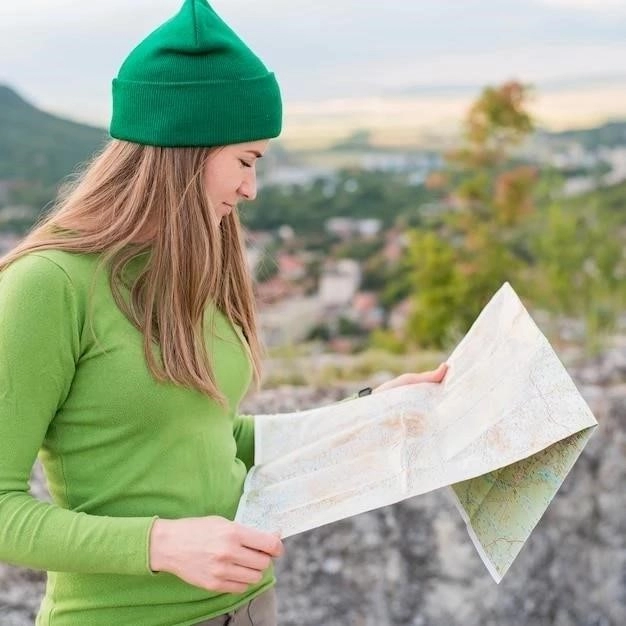
Before You Travel:
- Consult Your Doctor: Schedule a check-up with your doctor or a travel health specialist at least 4-6 weeks before departure. Discuss any necessary vaccinations or preventive medications based on your health history and itinerary.
- Travel Insurance: Ensure you have comprehensive travel insurance that covers medical expenses, emergency evacuation, and repatriation. Verify coverage specifics and claim procedures before you travel.
Food and Water Safety:
- Drinking Water: It’s advisable to drink bottled water and avoid consuming tap water unless it has been boiled or purified.
- Food Hygiene: Opt for well-cooked food from reputable establishments. Be cautious with street food and ensure raw fruits and vegetables are washed thoroughly before consumption.

Insect Precautions:
- Insect Repellent: Pack insect repellent containing DEET to protect yourself from mosquito and tick bites, especially when spending time outdoors, particularly in forested or rural areas.
By prioritizing health precautions and seeking medical advice when needed, travelers can enjoy a safe and healthy experience while exploring the captivating landscapes and cultural treasures of Abkhazia.



